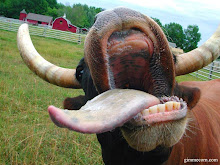The developmental challenges which are faced by Uttar Pradesh today are enormous in magnitude. Ours is not only the most populous state of India, but it also has the lowest Human Development Index of 0.388 (a measure of life expectancy, literacy and standard of living); Kerala is 0.638, while the overall national index is 0.472.
Saharanpur has a great potential in leading the overall developmental progress of UP. It's geographic location is strategic, sharing borders with Uttarakhand, Haryana and Himachal. Proximity to the national capital is indeed another great advantage.
But how and when will things change?
Reading about the recent farmer protests in the Greater Noida area, I did a search for 'Bhatta-Parsaul' on google-images to find out where it exactly lay on the map, but all I got was politicians' photos. This itself shows the immense politicization of real issues. Politicians cling to any and every opportunity to get public attention. The good old wikipedia says, “Public choice economics teaches that any issue where any group has a substantial financial stake is likely to be politicized.” However, the common man is not aware of it, since the background political objectives don’t really show up in the media - our sole source of knowledge.
To make matters worse is the pathetic situation of our media. Recently Amar Singh's tapes were released in which Prabhu Chawla is seen pleading and fixing the news. Then the 'India Today' editor, Chawla is heard saying, "Aapki saari news chalaa dunga, main haath jodta hoon aapke saamne Amar Singh ji, haath jodta hoon". But unfortunately, all that we are interested in is his sensational call to Bipasha! No one seems to be going after Amar Singh, the main culprit in running the underground corruption network of politicians, bureaucrats and businessmen.
The need of the hour is for us people to distinguish between the projection of media and the real issues lying at the hurdle of development. We must understand that our opinion is highly or maybe purely framed by our news channels which are in turn biased towards certain political ideologies. This creates a cancer of ignorance in the public opinion. If we can only see and understand these biases, there can be a huge shift in our general understanding. Once our understanding is clear and proper, our actions will certainly fall along the right line, and development will itself happen. I would like to end by Swami Vivekananda’s powerful quote - “We are what our thoughts have made us; so take care about what you think. Words are secondary. Thoughts live; they travel far.”
